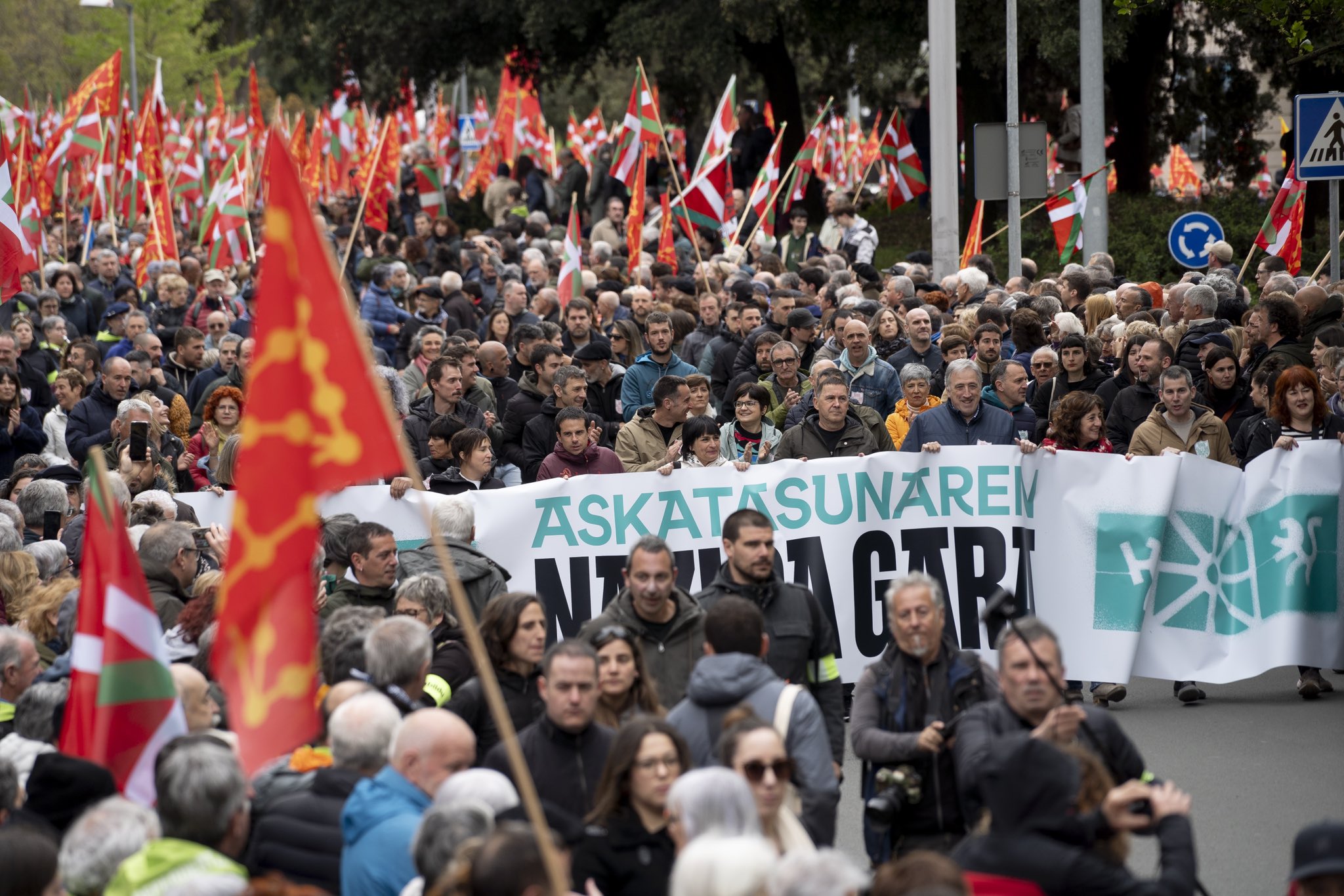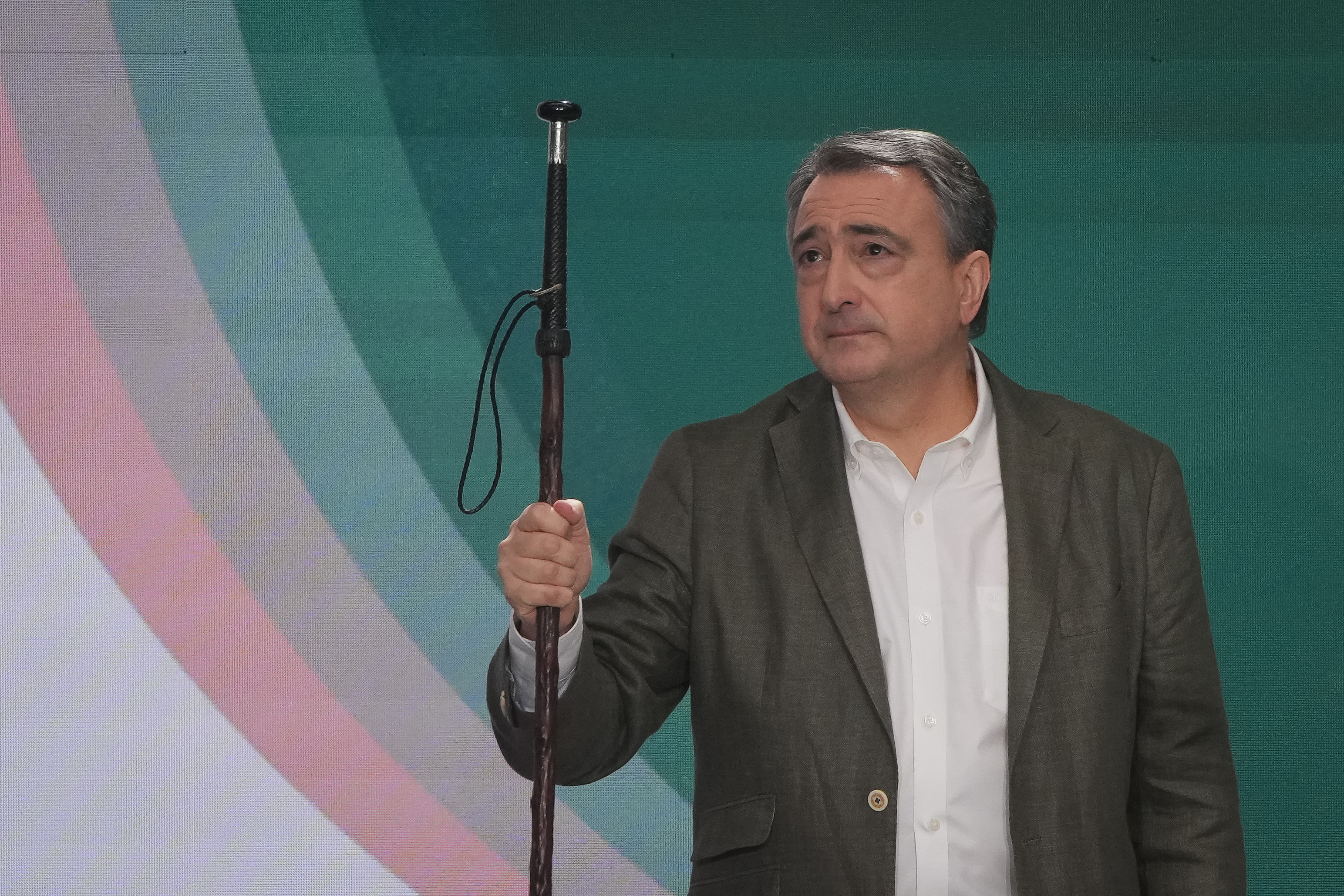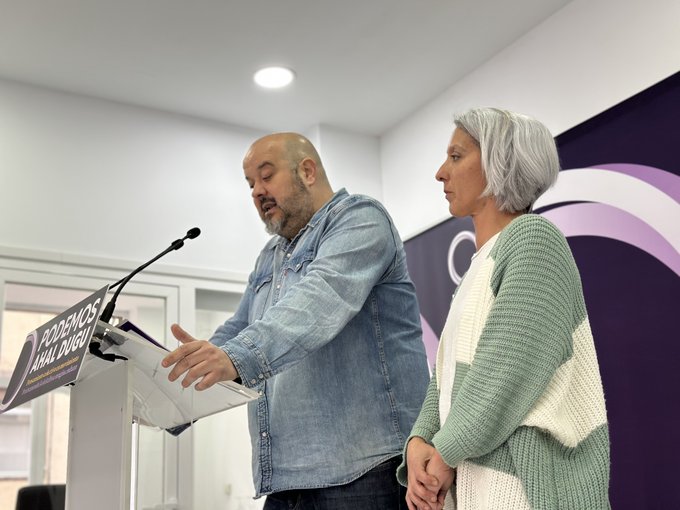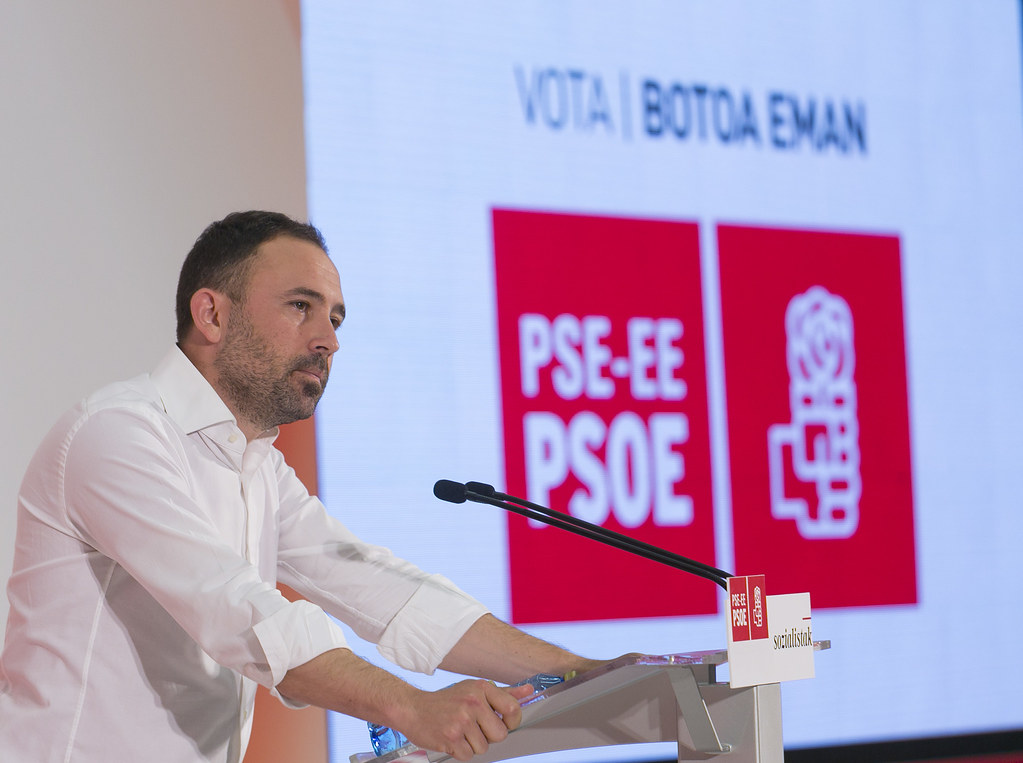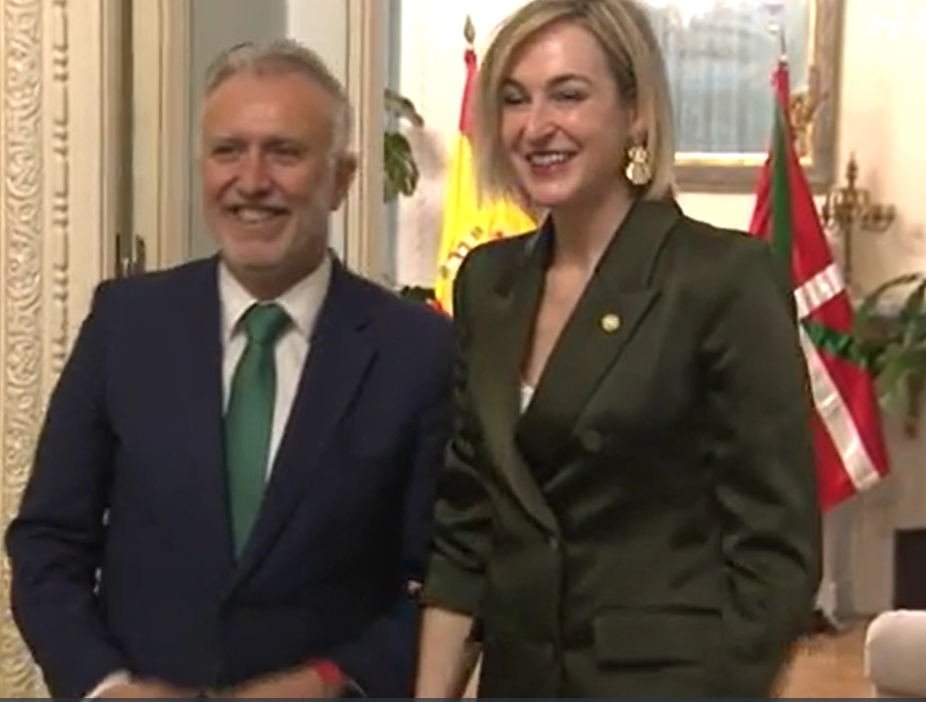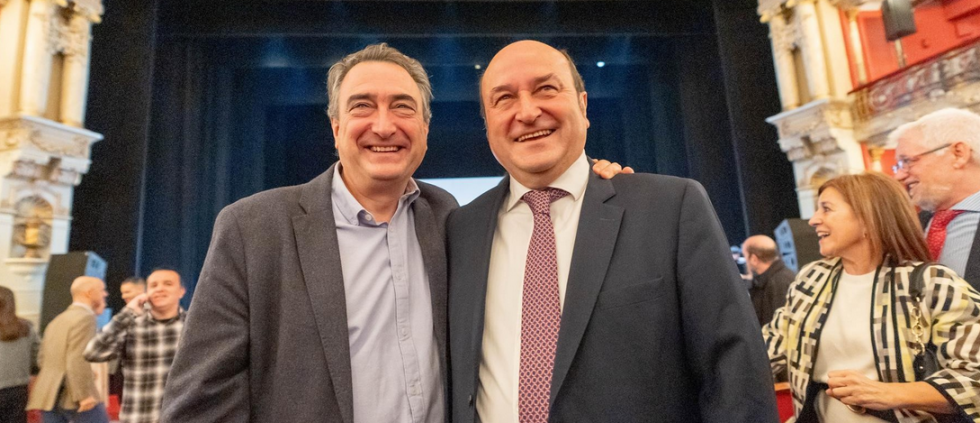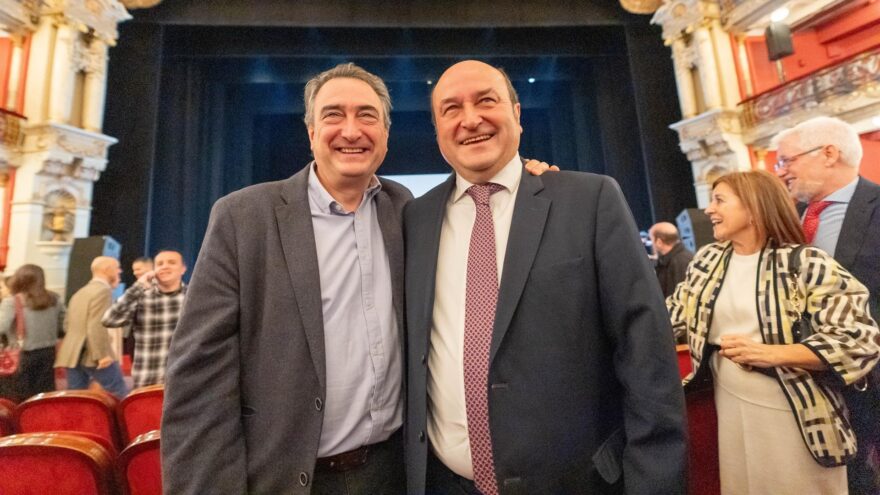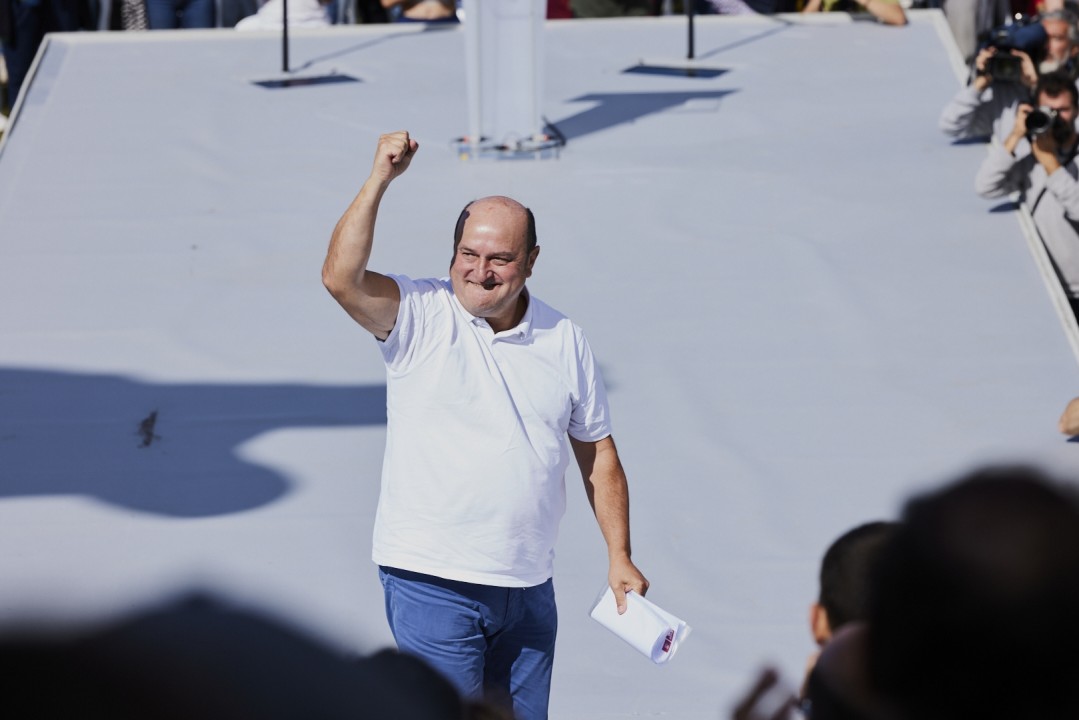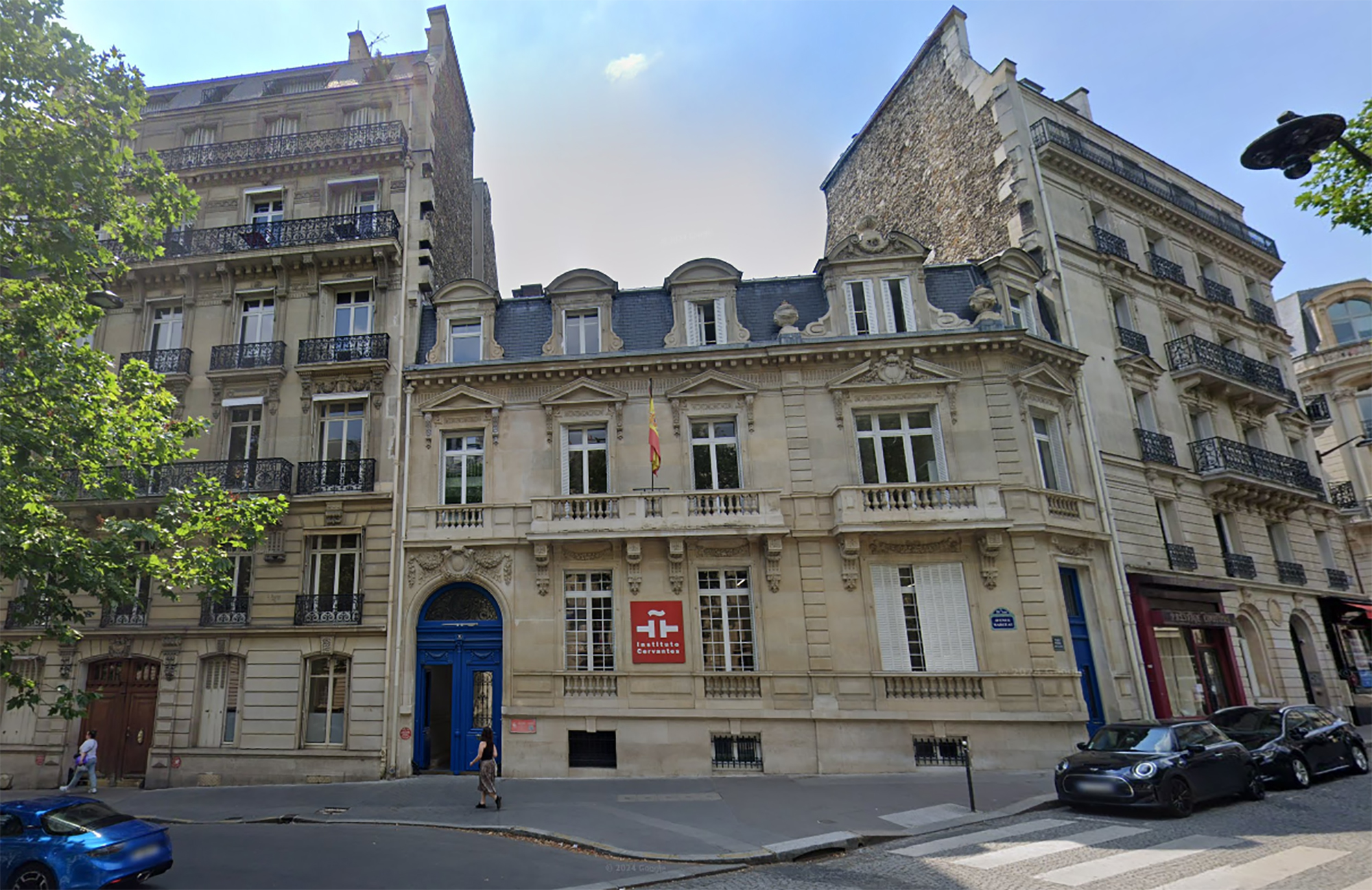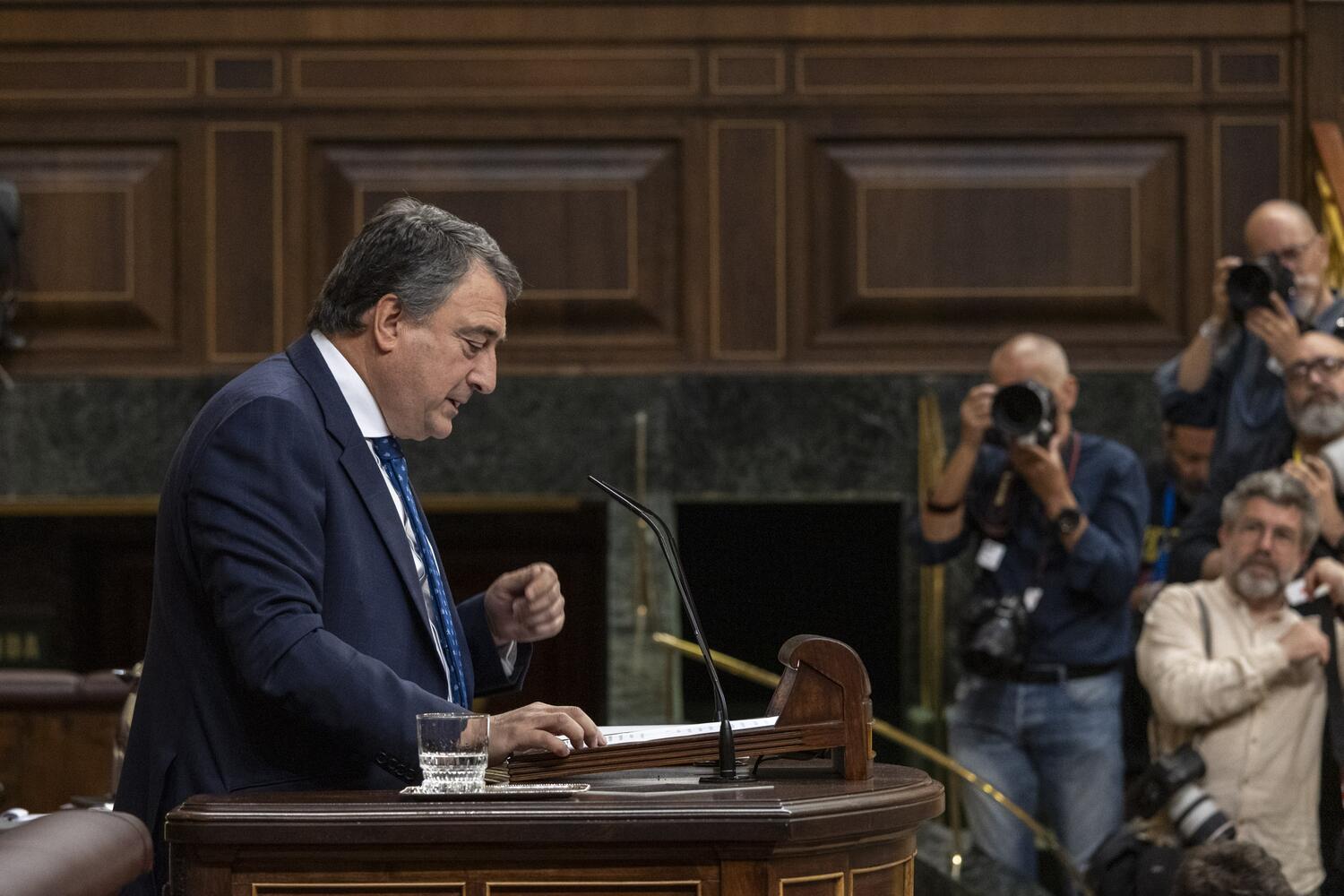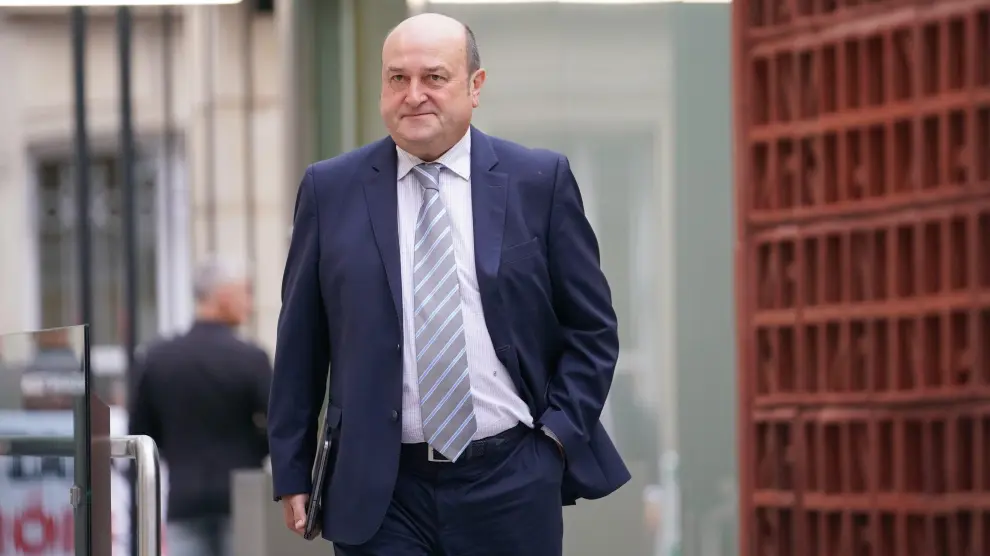"The PNV believes in the independence of this country"
- Bilbao 1967. He started in politics since he lived in Igorre, in EGI. He is president of the BBB of the PNV. Studied Basque Philology. Until recently she has worked in the 3Koma production company. He has also worked in the field of journalism. He has been director of ETB programming at the Zarzuela Palace. It gets us in the office of Sabin Etxea. Itxaso Atutxa speaks in Biscayan. He lives in Zeberio.

The new president of the BBB of the PNV has moved from communication to the front line of politics in the Basque Country. Here are some of the words of the interview we have held with Itxaso Atutxa: “It’s easier for me to be next to the journalist. The work of politics requires patience. I still do not give the stereotype of the politician, but on that I will also fall. That’s why I want to work my style.” As the first woman to serve as president in the structures of the PNV, we have also put the gender issue on the table: “When I was 20 years old, we worked on gender issues in party assemblies. I thought the concerns of women back then had been overcome. Now I am his age, things have changed, but they are very slow, too slow.”
Journalists, at least those in the mainstream media, are promoting power. Do you agree?
The big media, unfortunately, is at the mercy of money. That is why we need the public media. And also the private ones, we must ensure that they are not in the hands of the same masters, so that the different sensibilities can be accommodated. I have always advocated that this should be sound public media.
You've known ETB in recent years. Which ETB model would you like?
ETB1 has to be strong and chain referent. If ETB makes sense in Euskal Herria, we need that model. Recent generations have left ETB out of their reach. ETB is not its reference: neither for presenters, nor for informers, nor for series. For ETB1 to be powerful, you have to make a high-quality television. It has to be generalist, of all things, to be a benchmark for a lot of people. It must also take account of the Basque geography.
Geography…
For example, in Bilbao there is a number of Euskaldunes that have never been, and on television we have no reflection of that. Not from Bilbao, not from Donostia, nor from the urban life of the Basques in general. That is what ETB has to offer. We need a television that offers the life of the Basque capitals and the Basque society of the large urban villages.
The Bizkai Buru Batzar (BBB) is the first major training in the history of the PNV. To what extent does the Biscayan social model not affect the direction of the NPV? I mean, Bilbao is a “Spanish” city.
It is true that we are the strongest institution in the party, of the 30,000 members, 24,000 are Biscayan. And that's weighty. But the way you see this city is not reflected so much in what it looks like. Let us say – although the Spolisate that you mentioned takes away the adjective – that he is a Biscayan Castilian speaking. Bizkaia are also peoples for us, and in the party the peoples have an enormous strength, that is, the life and popular customs, this popular feelling. People often have much more weight than Bilbao. People are very strong in our organization. That would not seem to me to be such a big impression.
With the slogan Zazpiak Bat in mind, it is heard from time to time that the PNV is on its way to becoming a Biscayan party.
Yes, I too have been told: The lehendakari of the Basque Country is also Biscayan from EBB. Two Biscayan heads the party and the Basque government. I have a people in my head and that people have seven territories. We aspire to that national configuration, and we firmly believe in it.
Is the framework of autonomy with the Spanish State not, in part, detrimental to the sovereign appetite?
The PNV of Bizkaia, and the Basque Nationalist Party as a whole, have shown that it is abertzale, not autonomist. We believe in the independence of this people. That is indisputable.
The economic weight of Bizkaia (Petronor, for example) narrows or links the relationship with the State. Does the economy not condition sovereignty?
The economic relations of the whole world today condition our ties and limits: With Spain and with Europe. In addition to the company to which you referred, you can mention Iberdrola or BBVA. But we have to defend our identity. We have shown that we are able to manage and economically move this country forward. Therefore, our relationship with these companies should not change our model. For example, while we are in Europe, those companies do not care whether we are connected with Madrid or with Brussels. These companies want them to have the right environment for their business here, which also benefits us. Among other things, because we are going to create jobs in Bizkaia, Gipuzkoa or Navarra. We want to send relations on an equal footing. We have always made it clear that we are not just talking about politics for Madrid.
In art, however, the political avenues of the PNV and the left Abertzale are apparently far from each other.
I too see them far, and I would like to see them much closer. Furthermore, given the majorities in the Basque Parliament, I would like them to be much closer. But here we mark the distance the two. We have tried to get closer to EH Bildu after the last elections. Although he put concrete proposals on the table, he did not accept them. Moreover, as we approach other parties, such as EH Bildu, it approaches the PSE without any problem. As far as we are concerned, more problems seem to arise.
What prevents the two main expressions of nationalism from being closer?
The outbreak of EH Bildu in the institutions across the Abertzale left has become an inconvenience. In other words, unlike the past, political confrontation is now in the institutional dispute, in the voting dispute. Having passed the serious situation [after the illegality] they want EH Bildu to be our alternative. That is legitimate, of course.
You are accused of being the tenant of Ajuria Enea. They just want to place competition in hegemonic thinking.
In our criteria, competition does not enter into hegemonic thinking. We are playing the same game in Parliament, in the Provincial Council of Gipuzkoa, or whatever, and in politics every day there are difficulties in understanding us. But look, when they sign an agreement with the Socialist Party it is a step forward, they are left-wing. We are Spaniards if we reach an agreement.
The Basque Parliament is currently working on drawing up the CAV budgets. The PNV project is far from the pretensions of the other political parties. Far from the pretensions of the trade unions that are social representatives. The distance with ALS is increasing, for example.
The fact that ALS has separated from the PNV is historic. This attitude of ELA towards the PNV is more present today than that of nearby years. However, many of the ELA members are members of the PNV, having a dual membership status. Among others, the EBB president himself [Andoni Ortuzar]. I've seen ALS harder than LAB in the last few months. Both with the decisions taken by lehendakari, Iñigo Urkullu, and by the advisor Juan Mari Aburto, for example. The position and statements of ALS are very harsh.
In a way, they reflect the serious situation of society. ELA does not rule out calling for a new strike.
I talk to the people of ALS, we are also close to society. We too are a society, and we do not see that society needs a strike, or that it has a will. I would like to know who represents who and how much each represents. I have no desire or need for a citizens' strike. Moreover, ELA referred to the need to call a strike, not only to the will, but also to the need. Is there a need to strike?
In any case, the PNV is the party that best adapts to economic management with pp. They have signed agreements in the parliaments of Bizkaia and Álava.
We have agreements with pp, but at the same time we have reached an agreement with the PSE on EITB, also in the cases of the Court of Auditors and Ararteko. We try with each other and with each other, just like everyone else. We are based on political pragmatism, we are not ashamed to express it, politics is pragmatism.
The PSE has vetoed Jaime Otamendi as Director-General of EITB. In the name of pragmatism, the veto is accepted.
I know Jaime Otamendi personally, he has previously demonstrated professionalism in ETB and now in the Basque Country Irratia. He is a good person and professional. The management has also been good. Of course, when you have to reach agreements in political relations, there are the scars on one side and on the other. I want Otamendi’s professionalism to stay on top, because no one has tried to spoil it and that has no words.
But the veto is approved, that is “remuneration” in politics.
It is paid in all political agreements, as the socialists would pay in the General Meetings of Gipuzkoa to reach an agreement with Bildu.
It is one year since the death of Iñigo Cabacas by the Ertzaintza. Responsibilities have not been clarified. You can ask for more, right?
Yes. First because it was wrong and the family of the deceased is asking for clarification. First of all, what pain, no? However, experts tell us that these kinds of processes are long. A year has passed, they say that the procedures are long, because a lot of people are going to declare, etc. In the meantime, a lot has happened, that is true. Perhaps we should explain the political responsibility, not so much that of the person who shot, but that of the Interior Ministry itself to clarify the responsibility. That is what I am asking for. The Interior Minister, Estefanía Beltrán de Heredia, has taken the issue very closely. We have to go to the last responsible, the Department of the Interior takes responsibility, we have to clarify what happened.
When there are other expressions of violence, it seems that from the instances of power the facts are treated differently.
It is true that in other cases they are required to be responsible for the exercise of violence, and therefore, when this happens, we in the institutions must be more transparent than ever before, so that there is no doubt about it, and there is no blurring of responsibility.
The murder has been described as an accident. Does the mechanism of power protect your interests?
With people’s lives, either in power or in power, those of us in government positions must be held accountable. The PNV has called for a standing committee to be set up in Parliament for such cases, so that they do not happen, and for the facts to be clarified more quickly.
Regarding the death of ETA member Xabier López Peña, in Radio Euskadi your statements have been poorly received in some sectors.
Yes, from Twitter I've been given firewood. Maybe I said wrong what I meant. I insist, in this or in another case, the family cannot be uninformed for so many hours. The family has every right to ask for clarification and everything that has happened must be clarified. The prisoner also has rights. I have always been in favour of it. What I do not understand is attributing death to Spanish and French prison policy. I don't see this easily in my schema.
The ultimate cessation of ETA’s armed activity does not seem to respect fundamental rights.
In the present situation, Governments should make legislative changes to make another situation possible. Emergency laws must be amended and existing penalties must be complied with in accordance with current law. They say that problems have also arisen in other peace processes when the laws have had to be amended. It is true, however, that, for example, the Spanish Government does not want the prisoners of eta to be brought closer together.
From Aiete to the present day, ETA and the Abertzale left in general have taken many steps, the Spanish Government has taken none.
Is the attitude of pp right now? I don't know. The Spanish Government can take steps, but the Minister of the Interior does not seem to be keen to take that step. Although the Interior Minister does not wish to take any step forward, ETA could take further steps. Instead of waiting for the steps of the Government, I could call on the International Verification Group (ICG) to deliver arms, for example.
Is it possible to do so? Without the other side?
I believe there must be the other side, but ETA can do something more on its own, and perhaps it can force the government to move. ETA can explain in this way that he continues to take steps. The government may then take some step, for example, towards bringing prisoners together.
PPrekin eta EH Bildurekin negoziazioetan porrot egin ondoren etorri da Ahal Dugurekin adostutako akordioa. Indar politiko honek aitortu duenez, maximalismoak atzean utzi eta errealitateari heldu diote, errenta baxueneko herritarren aldeko akordioa lortuta.
Plataformak "atzerapausotzat" hartu du Eusko Jaurlaritzako Etxebizitza eta Hiri agendako sailburu Denis Itxasok berriki iragarri izana lurzoru urbanizagarrietako etxe babestuen proportzioa %75etik %60ra jaistea. Pradales agintera iritsi zenetik alokairu soziala eskatzen... [+]
2025 amaitu baino lehen Gernikako Estatutuan jasotzen diren eskumen guztiak izatea espero du Jaurlaritzak. Oraindik 25 eskumen falta dira. Transferentzia Batzordea aurreko astean biltzekoa zen baina "agenda arazoak" zirela eta atzeratu zuten.
Joan den asteartean La Vanguardia-n argitaratutako artikuluan egin zuen proposamena Txema Montero abokatu bizkaitarrak. 30 urtez Deia egunkariko kolaboratzailea izan da eta lehenik hara bidali zuen bere artikulua, baina egunkariak ez zion argitaratu.









